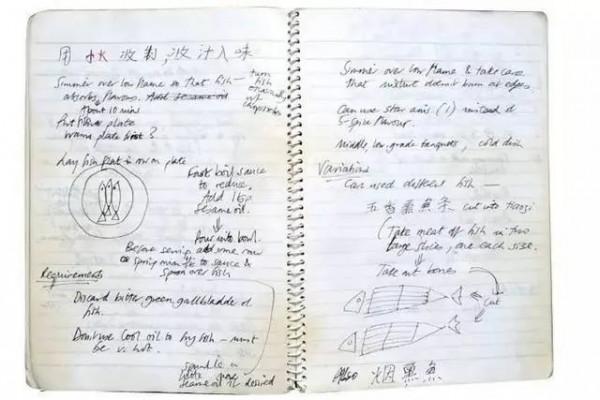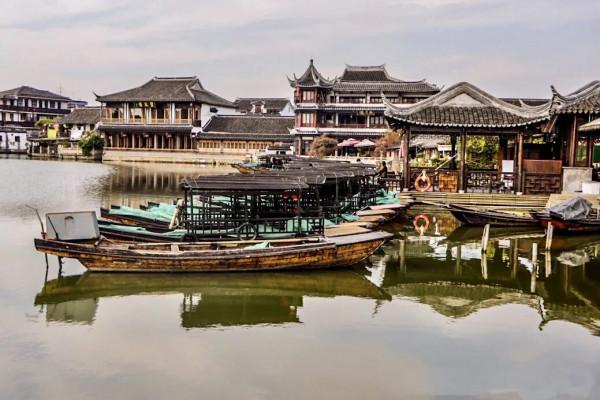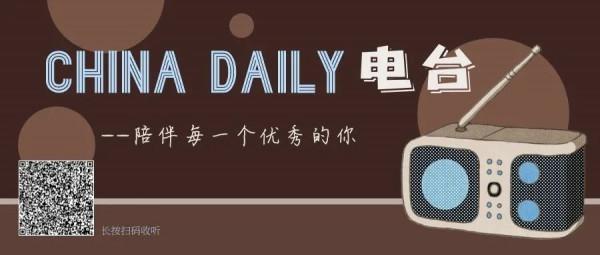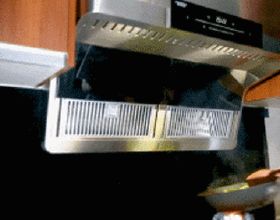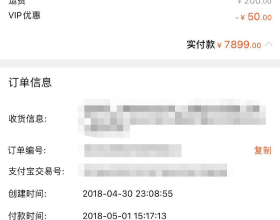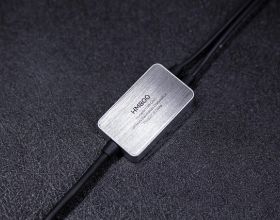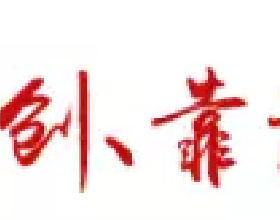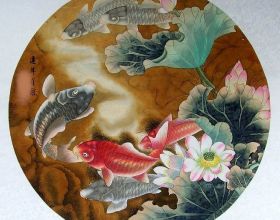British gourmet Fuchsia Dunlop's posts on WeChat or Instagram, serve up a diet of humor. Most of the posts are about her experience with food from around the world. But since the COVID-19 pandemic broke out in London last February, cooking has become a way for her to cope with the "endless lockdown". She says she cooks in a very relaxed way, going to the farmers' market at the weekend to buy seasonal products for everyday cooking — a mixture of Jiangnan, Hunan, Guangdong, and Sichuan dishes.
英國美食家扶霞·鄧洛普的微信朋友圈和Ins都非常有趣,大多都在分享自己在世界各地品嚐的美食。去年二月新冠疫情在倫敦暴發後,做飯就成了扶霞度過“難捱的封鎖”的一種方式。她會在週末去菜市場買一些時令食材,然後每天做飯,這對她來說是一種非常放鬆的方式。她會做各種菜系,江南菜、湘菜、粵菜、川菜都手到擒來。

"For me, there are so many wonderful things about Chinese food. The thing that I find is greatest about it is that you can eat food that is both really delicious and incredibly healthy," Dunlop says. "The Chinese are experts at cooking vegetables, so it's very easy for me to eat Chinese food almost every day."
扶霞感慨道:“對我來說,中國食物太讓人驚歎了!最妙的就是中國食物真正實現了健康和美味的統一。中國人都是烹飪專家!所以我幾乎每天都能吃到地道的中國菜。”
Growing up in a household in Oxford, Dunlop dreamed of becoming a cook when she was little. However, her dream did not start to materialize until she came to Chengdu, capital of Sichuan province, as a university student in 1994. That was when she began learning local cooking skills at the Sichuan Higher Institute of Cuisine.
扶霞在牛津長大,從小就夢想成為一名廚師。1994年,她來到成都留學,這一夢想才逐漸開始實現。也是在這個期間,她開始在四川烹飪高等專科學校學習川菜烹飪方法。
圖源:上海譯文出版社
Always keeping a notebook on hand wherever she went, she wrote down the recipes of the dishes she tasted. Based on her knowledge of Sichuan cuisine, Dunlop published her first book, Sichuan Cookery, in 2001, which was hailed by theObserver Food Monthlyas "one of the top 10 cookbooks of all time".
扶霞到哪兒都會拿著筆記本,每次吃到好吃的菜,都會把菜譜記下來。基於對川菜的瞭解,2001年,她出版了自己的第一本書《川菜》,奪得英國著名飲食雜誌《Observer Food Monthly》大獎,被評為”史上最佳十大烹飪書籍“。
圖源:上海譯文出版社
Since then, she has published four books about Sichuan cuisine, and one in 2016 about recipes from Jiangnan, called Land of Fish and Rice.
後來,扶霞陸續出版了四本烹飪書,都是關於川菜。而出版於2016年的《魚米之鄉》則主要介紹江南菜。
Now, a Chinese version of Land of Fish and Rice, translated by He Yujia, is available. In the book, Dunlop displays her profound understanding of the food culture that runs deep in the blood of Chinese people.
《魚米之鄉》已經由何雨珈譯為中文版。在書中,扶霞分享了她對深淌在中國人血液中的飲食文化的深刻理解。
Having studied Chinese food culture for nearly two decades, she regards the Jiangnan region as the heartland of the nation's gastronomy.
經過對中國飲食文化近二十年的研究,扶霞把江南地區看作中國烹飪的“心臟”。
"Although you have really interesting and delicious food all over China, in this region, particularly, people wrote about it and discussed it. Many of the old classic food books came from this region, for example. So, if you talk about gastronomy, and not just about good food, then Jiangnan is a really important region," she says.
扶霞表示:“儘管全中國都有有趣、美味的食物,但在江南地區,人們會把食物記錄下來,不斷地討論。很多歷史悠久又經典的食物著書就是這個地方出來的。所以,真正談到烹飪,而非美食的話,江南地區就很重要了。”
Dunlop spent 10 years researching the book.
扶霞花了十年時間觀察探索江南飲食文化,才著成此書。
The decisive moment was in 2008 when she went to Longjing Caotang, or the DragonWell Manor, a restaurant in Hangzhou, Zhejiang province, where the whole approach to ingredients, seasoning, cooking and tradition was so moving and impressive that, at that moment, she decided to write a book about the region, she says.
2008年,當扶霞走進浙江杭州的一家餐館”龍井草堂“之時,她的心中萌生了寫一本江南食譜的想法。這家餐館對食材的講究、對料汁的精心搭配,獨到的烹飪方法和烹飪師傅對傳統的堅守都讓扶霞心嚮往之。
By then, she had published three books about Sichuan and Hunan cuisine, both of which are famous for being stimulatingly spicy. But in Hangzhou and Yangzhou, she encountered food that was calm, peaceful, soothing and delicate.
在那之前,她已經出版了三本川菜和湘菜的烹飪書。這兩種菜系都以辣聞名,非常刺激味蕾。但在杭州和揚州,扶霞邂逅了另一種美味,清遠收斂、柔和淡然、撫慰人心、精巧雅緻。

To better understand the context of the food in Jiangnan, Dunlop started reading Chinese classics like The Dream of the Red Chamber which contained detailed descriptions of dishes eaten by literati and aristocratic families in ancient China.
為了更好理解江南食物的文化內涵,扶霞開始閱讀中國典籍,比如《紅樓夢》,裡面細緻刻畫了古代中國文人學士、達官貴族所吃的菜餚,琳琅滿目。
"Jiangnan food is connected with Chinese literature. Lots of dishes have quite literary names or stories behind them," she says.
扶霞說:“江南食物和中國文學密不可分。很多菜餚的名字都很有文化韻味,背後也有其起源故事。”
As a result, when introducing food in the book, besides tracing the history of the dishes, she also tells stories like how Su Dongpo, a great poet during the Song Dynasty (960-1279), invented Dongpo Pork in the 11th century, or quotes his poem that praises delicious sea bass.
因此,在扶霞的書中,除江南菜小史,其背後的美食掌故讀者亦能窺見幾許。書中有中國宋代詩人蘇東坡發明東坡肉的故事,也有蘇東坡讚譽鱸魚美的傳世詩句。

After collecting all the recipes, Dunlop tested them at her home in London to make sure they worked for people in the West.
收集完所有菜譜後,扶霞會在倫敦的家中做“試驗”,以確保菜品符合西方人的口味。
"What I want to do is to try to describe the recipes accurately. If I make a change, I explain it," she says.
“我想用一種精確的方式詮釋這些菜譜。如果我要對菜品做出一些調整,我會有所解釋。”
In total, there are more than 160 recipes that cover the typical food and dishes that people in Jiangnan eat, either at a banquet or at home every day.
書中共囊括了江南人日常或宴會時經常吃的160多道菜品。
However, because Jiangnan is a large region, it was not easy for her to decide which dishes should be presented in the limited number of pages.
但是,對扶霞來說,這是豐饒多樣的江南,在有限的篇章裡選出可以代表它的菜品不是件容易事兒。
"In the end, it's just a matter of personal choice and judgment," she says, adding that she wanted to include as many as possible of the really essential famous dishes like Dongpo Pork, Westlake vinegar fish, and lion-head meatballs, "the really classic dishes".
扶霞說:“其實,就是個人的選擇和判斷。我想要儘可能囊括那些真正值得留下來的著名菜餚,比如說東坡肉、西湖醋魚、獅子頭等等,那些真正經典的菜品。”
"But I also like to include dishes that I've enjoyed, or that have a particular meaning for me, like maybe a simple dish that someone cooked for me that I thought was lovely and that I want to cook at home.
“我還想把那些我喜歡吃的或對我有特別意義的菜放到書裡。可能就是別人特地為我做的一道簡簡單單的魚,但我認為非常好吃,或者說我也想在家自己做。”
"It's like trying to paint a picture of the region and show its many different sides, from the banquet to the street food," she says.
“寫這本書就像是給江南臨摹一幅畫,多方位地展示它,既集結珍饈佳餚,也收錄街頭小吃。”
☊點選聽音訊☊
編輯:陳月華 周嬋 商楨
記者:楊陽
錄音:Stephanie Stone
實習生:申樂 舒好 李蕤 陳勵澄



